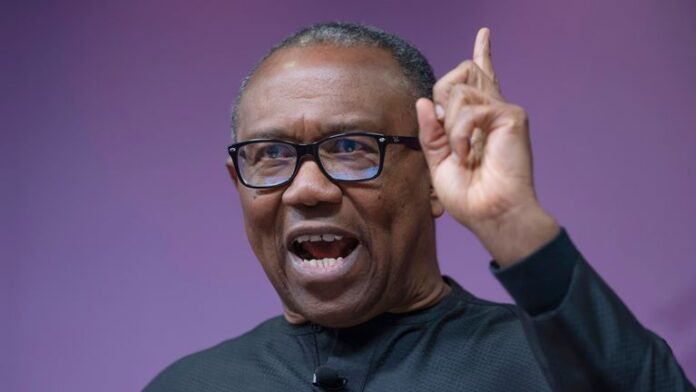Former Labour Party presidential candidate, Peter Obi, has dismissed fears that Nigeria may be drifting toward a one-party state, following recent high-profile defections to the ruling All Progressives Congress (APC).
Obi made this known on Wednesday in Abuja while reacting to the defection of Governor Peter Mbah of Enugu State and Governor Douye Diri of Bayelsa State to the APC.
He argued that defections by governors or politicians do not automatically translate to political control of any state or region. According to Obi, in a democracy, it is the people who decide, not just those in power.
“The people will decide where to go, not governors or senators,” he said. “No party will capture or win any state just because it has a governor.”
The former Anambra State governor said that the idea of “capturing” a region because of a defection belongs in Nigeria’s past when military-style thinking dominated political strategies.
“As for the alleged plot to capture the South-East, we are not in military times when you capture people,” Obi stated. “You are a leader. You tend to do the right things for them to follow you. So I don’t think anybody is capturing anywhere.”
Obi explained that while he respects Governor Peter Mbah as a friend and colleague, the governor’s decision to join the APC is a personal political move and does not represent the will of the people of Enugu State or the South-East.
“Peter Mbah is a good friend of mine, and I believe that as governor, he must have taken his decision based on his own political views and calculations,” Obi said.
Obi’s remarks come in the wake of growing concerns among opposition parties and civil society groups that Nigeria’s political space is becoming less competitive. These fears have intensified with a series of defections by top opposition figures to the ruling APC, raising concerns about the health of Nigeria’s democracy and the future of a strong opposition.
Obi stressed that good governance, not political alignment, is what earns public support in a democracy. He said that politicians must focus on delivering policies and programmes that improve people’s lives, instead of jumping from one party to another in search of power or protection.
“No amount of political realignment can guarantee loyalty from the people without performance,” Obi warned.
He said the key to winning support is persuasion, not coercion, and reminded political leaders that their focus should be on service, not manipulation of party structures.
The APC currently controls 24 out of Nigeria’s 36 states. With the recent defections of Enugu and Bayelsa governors, political observers are watching to see if more governors from opposition parties will follow suit.
Earlier this week, Minister of Information, Mohammed Idris, predicted that the APC would control 30 states by 2026, citing President Bola Tinubu’s leadership and policies as reasons for the shift in political allegiance.
However, critics argue that such moves reflect the weakness of party ideology in Nigeria, where politicians often switch sides based on personal gain rather than principles or public interest.

